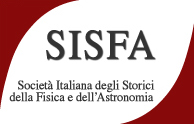Speakers
Description
The teaching of Physics and Chemistry at the university level has traditionally presented a static and definitive view of science that was established in the early 20th century. However, contemporary research in science education has fostered a new perspective on the significance of the history of science as a source of metascientific knowledge for the improvement of educational practices. By reviewing the historical evolution of concepts taught, we gain insight
into the dynamic nature of scientific knowledge construction and its implications for student learning. Simultaneously, it provides an opportunity to understand some of the learning difficulties that students face due to a certain parallelism between historical construction and personal construction of scientific knowledge. This works aims to examine the role of the history of science through two of our research investigations, conducted via documentary analysis, and the didactic implications of their findings. One case focused on organic chemistry, exploring the historical development of the benzene structure and the concept of resonance. The other involves a historiographical study on the establishment of the laws of thermodynamics and the impact of classical textbooks developed by scientists such as Planck and Fermi, which marked the beginning of thermodynamics instruction and still persist as study materials in
classrooms. Through these investigations, we aim to emphasize the importance of integrating historical perspectives into Physics and Chemistry education at the university level. By leveraging historical contexts, educators can enhance students' understanding of scientific concepts and address the challenges they face in their learning process.

